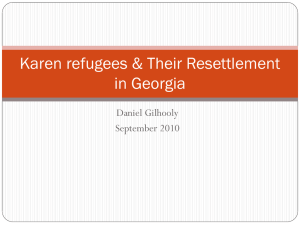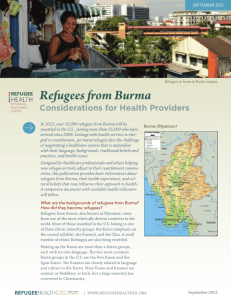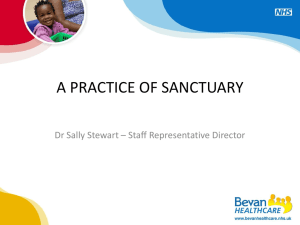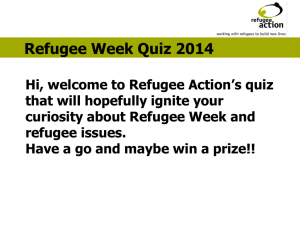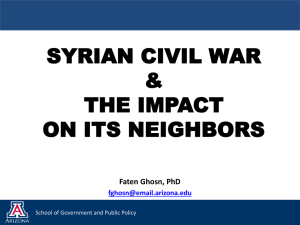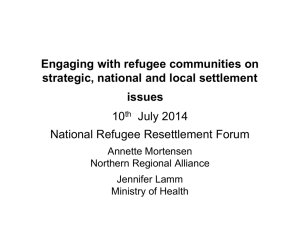Northview`s Karen and Karenni Students
advertisement
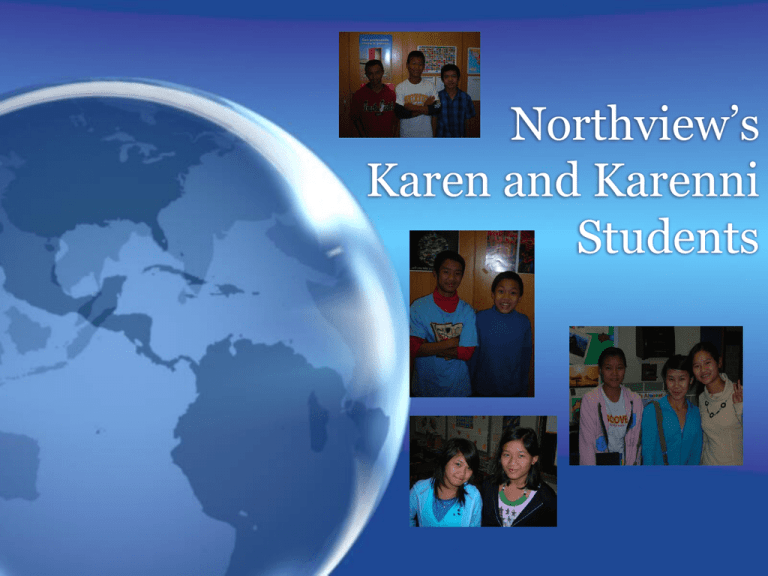
Northview’s Karen and Karenni Students Our Karen/Karenni Students Our Karen and Karenni students are refugees that come to us from any of 9 refugee camps in Thailand Some students were born in a refugee camp while others may have lived in Burma and fled to a camp for safety Some students have attended elementary school in the U.S., while others have just arrived The 1st Karen student in MSDWT arrived in the fall of 2006 and is now a sophomore at NC In 2008-2009, MSDWT had ~40 Karen students; this year there are more than 80 enrolled, including the 1st group of Karenni speakers History of Burma Burma achieved independence from Britain in 1948 In 1962, the military took control and began a Burmese socialist program; under the new regime, civilians were subject to many human rights abuses such as land confiscation, forced labor, and forced relocation By the mid-1980s, the Burmese military had seized a majority of the Karen territory and the human rights abuse continued; the first wave of Karen refugees fled to Thailand in January, 1984 Refugees continue to seek shelter in camps along the Thai border Today, Burma is sometimes called Myanmar, but the U.S. and other countries that do not support the current military government have not adopted the name change The Refugee Experience Around 150,000 people (mostly Karen and Karenni) are living in designated camps in Thailand; some have been there for more than 2 decades Refugees are legal immigrants who are eligible to apply for legal permanent residence (green card) after 1 year in the US The United States has nearly 5,000 refugees from Burma, of which about 3,500 are Karen The US government proposes to resettle an additional 17,000 refugees from Burma in the fiscal year 2009 Over the next 5-10 years, Burmese refugees will be resettled in the United States, Canada, Australia, Norway, Sweden, Denmark, and Finland Interesting Facts Karen use nicknames-there are no first or last names Karen people are mostly farmers; dyeing cloth, weaving, and basket-making are also important activities The Karen have always placed a high value on education, but many schools lack funds since the military outlawed many private schools In surveys done by the United Nations (2005-06), of those applying for resettlement : - 2/3 reported receiving primary, middle, or secondary education - 1/3 reported receiving no education - Fewer than 100 peopled received vocational training or attended university Many Karen resettled in the US have little or no knowledge of English Among the Karenni population, literacy rates are low and most literate Karenni use the Burmese language and script Our population of Karen/Karenni families work primarily in housekeeping, meat processing, warehouse jobs, and other low-skilled occupations Some parents commute as far as Logansport and Washington, IN for work *Information cited from: Refugees From Burma: Their Backgrounds and Refugee Experiences” Published by the Center for Applied Linguistics, June 2007 Myanmar: Cultural Competency and Tuberculosis Control Published by the Southeastern National Tuberculosis Center, April 2009 Paw Wah Video


